Iranian voters must make ‘informed choice’ in June 28 election: Ex-Diplomat
By Alireza Akbari
A former seasoned Iranian diplomat foresees an increased voter turnout in the upcoming presidential election slated for June 28, urging people to make an “informed choice.”
In a conversation with the Press TV website, Mohammad-Hassan Ghadiri Abyaneh, Iran’s former ambassador to Mexico and Australia, touched upon two factors that could spur the turnout this time.
He highlighted the impact of the martyrdom of President Ebrahim Raeisi in fostering national unity and also pointed to the influence of televised programs in bolstering voter participation.
Six candidates running for the country’s presidency are currently busy with campaigning, leaving no stone unturned to win the favour of voters and race ahead of their competitors.
Ghadiri Abyaneh said the Iranian nation should adopt a “pragmatic approach” to evaluate the promises and pledges made by the candidates and make an “informed choice.”
He emphasized the importance of scrutinizing whether their promises align with the country's capabilities and resources for effective implementation.
Stressing the need for active participation in the June 28 election, he urged people to not only make informed choices but also actively engage in the country’s societal and economic issues.
The snap presidential election came in the wake of the martyrdom of President Raeisi and his companions, including Foreign Minister Hossein Amir-Abdollahian, in a helicopter crash on May 19.
According to pre-election polls conducted in recent weeks, at least three candidates are in a close fight, which makes it an interesting contest, according to experts.
Before the names of qualified candidates for the forthcoming election were announced, the Iranian Students Polling Agency (ISPA) conducted its first field survey on June 8 and 9.
In the survey, 3,906 individuals above 18 from 31 provinces participated, offering insights into the anticipated voter engagement for the snap presidential election.
The survey results revealed respondents' intentions towards participation in the upcoming election.
Notably, 44.4 percent of those surveyed expressed firm commitment to voting, categorically stating they would "definitely" participate.
A smaller but still significant percentage, 7.3 percent, indicated a high likelihood of voting, describing it as "highly probable."
Furthermore, the survey delved into the level of engagement with election-related news among the populace where 38.3 percent saying they follow the Islamic Republic of Iran Broadcasting (IRIB) for election-related news and 14 percent said they get information from domestic news agencies.
Moreover, the survey shed light on the public's expectations of the incoming president.
A significant majority, comprising 58.5 percent of respondents, prioritized the alleviation of poverty as the primary task for the next president.
Job creation emerged as the next crucial concern, identified by 39.7 percent of participants.
Additionally, 36.5 percent stressed the importance of combating inflation and stabilizing the local currency.
Foreign policy and national security also garnered interest, with 28.7 percent and 28.4 percent of respondents prioritizing them, respectively.
Concerns regarding housing and fighting corruption were also prominently cited, with 20.6 percent and 19.6 percent of respondents emphasizing their importance.
Ghadiri Abyaneh underlined that the annual slogan, chosen by the Leader of the Islamic Revolution Ayatollah Seyyed Ali Khamenei at the outset of the Persian New Year, is intended for Iranians, echoing the sentiment of collective responsibility and involvement in shaping the nation's future.
He also underscored the important role of mass media, describing media platforms as “mutually beneficial” tools for both candidates and voters.
The former diplomat also highlighted the contrast with the US electoral landscape, where candidates bear exorbitant costs exceeding 1 billion dollars for campaign advertisements, while in Iran, access to media channels is freely available, benefitting both candidates and the electorate.
In the 2021 presidential election, Ebrahim Raeisi won by a landslide.
Of the 28,933,004 votes tallied, Raeisi received 17.9 million votes, followed by Mohsen Rezaei with 3.4 million, Nasser Hemmati with 2.4 million, and Ghazizadeh-Hashemi with close to a million.
Hidden strengths of Iran’s post-revolution economy
UK Supreme Court dockets Iran’s appeal over London building confiscation
Israeli airstrikes kill three more in northern Gaza amid truce breaches
EU targeting platforms that refuse to ‘censor free speech’: Telegram CEO
Chechen leader vows retaliation after Ukrainian drone strike
US pressures European allies to take over NATO duties by 2027: Report
Remembering Refaat Alareer: Gaza’s storyteller whose words turned pain into power
VIDEO | Press TV's news headlines


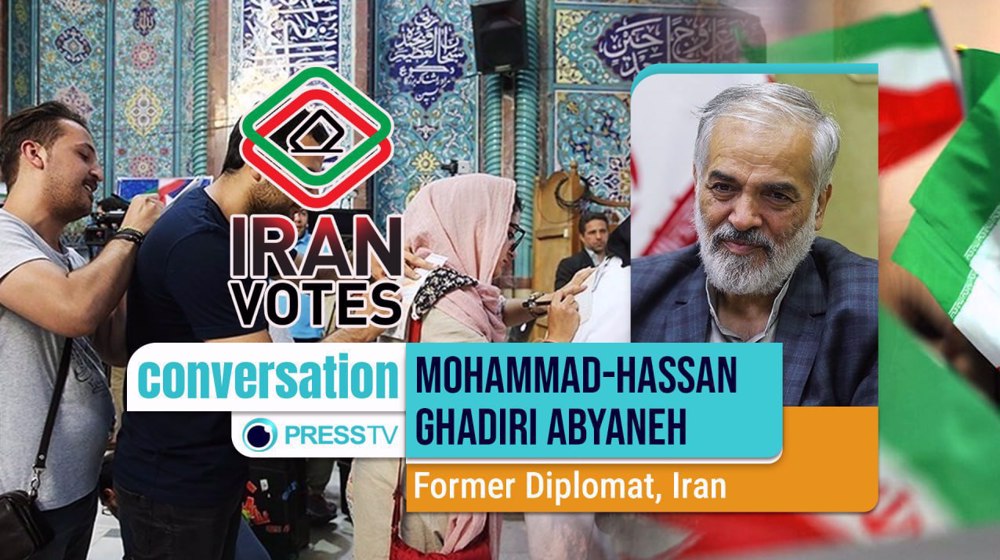
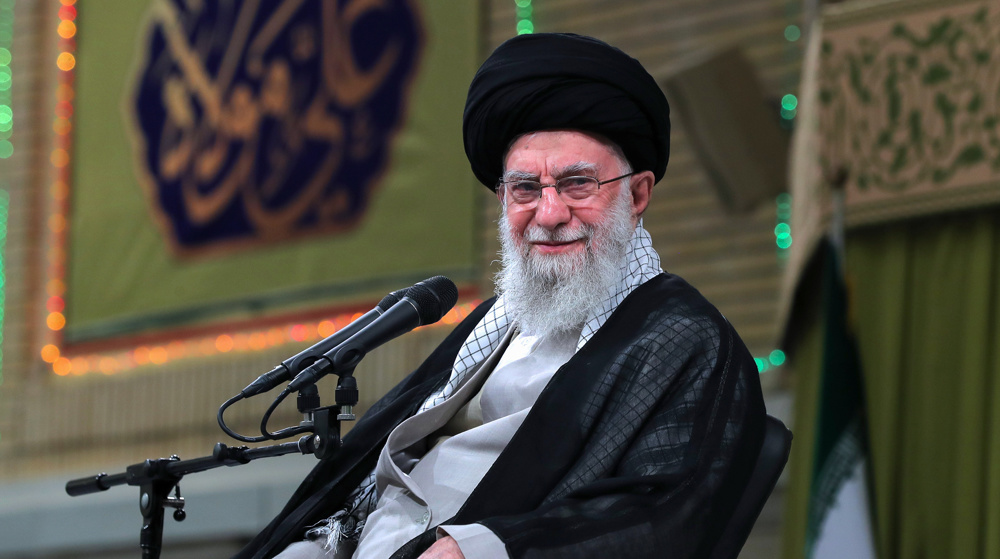
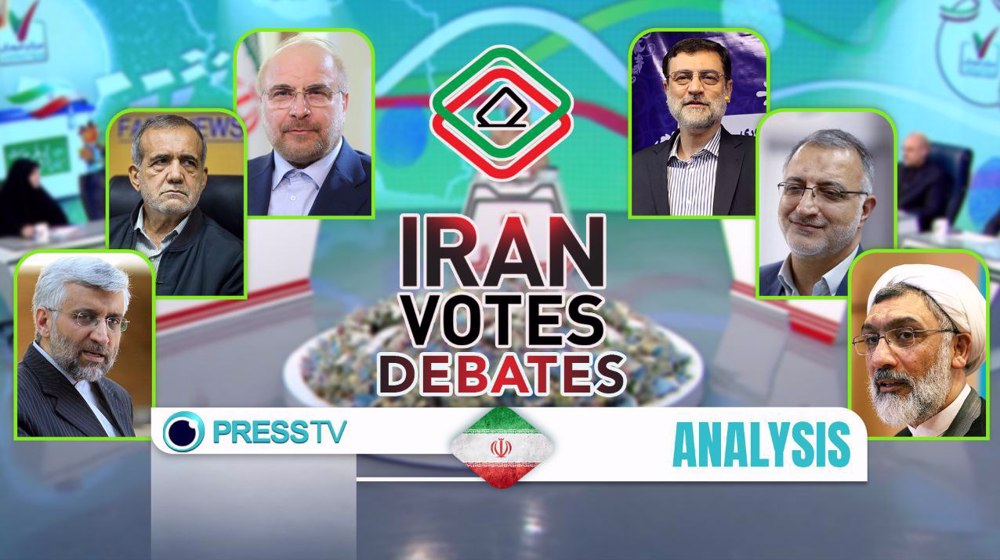
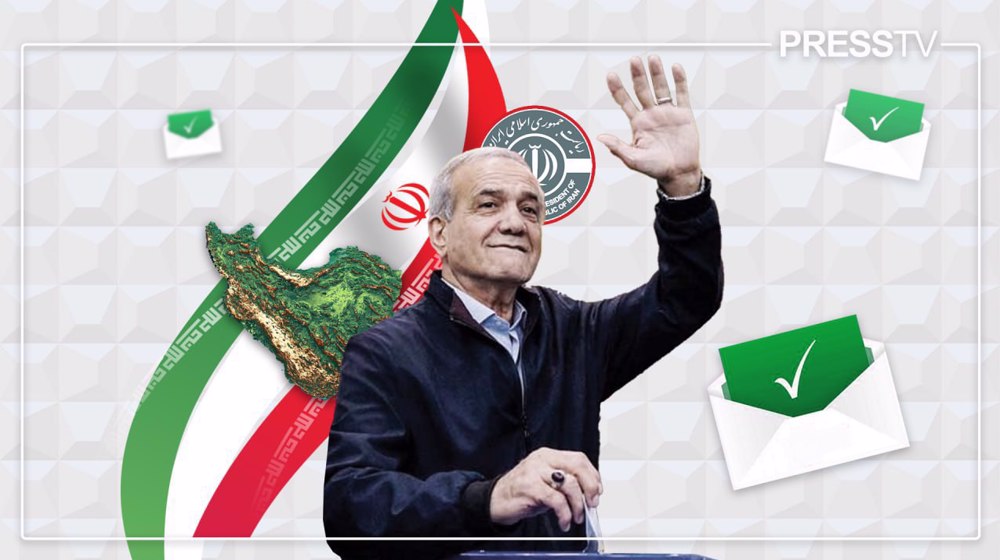
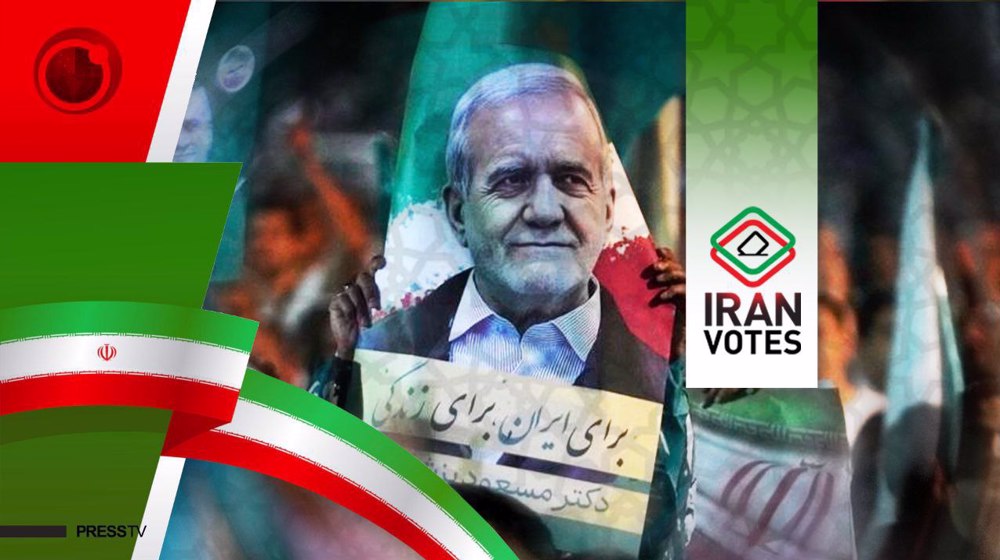
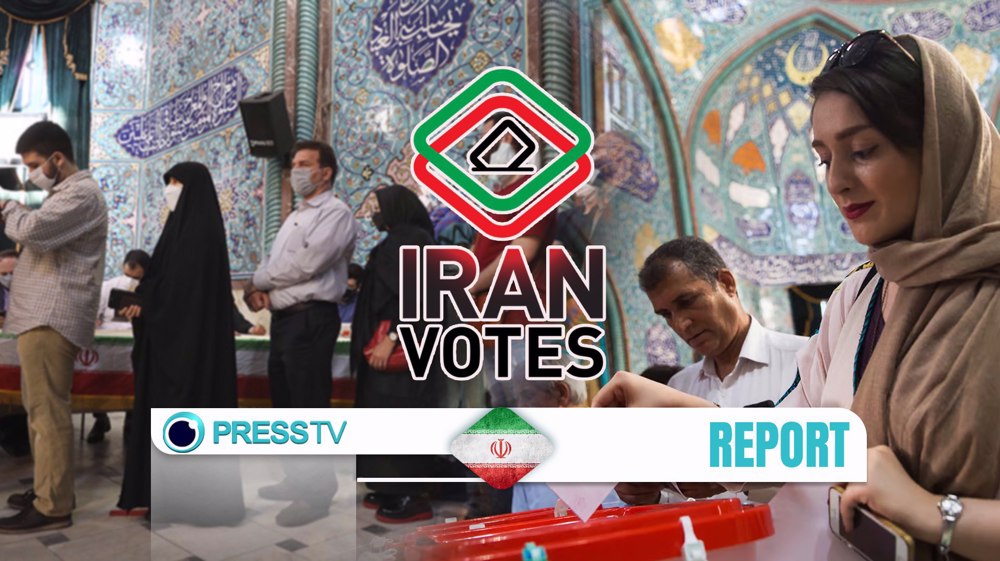




 This makes it easy to access the Press TV website
This makes it easy to access the Press TV website